About StayWell Healthcare Inc – Psychiatric Outpatient Clinic for Adults
StayWell Healthcare Inc. has a network of clinics across Waterbury, Connecticut, dedicated to multiple medical needs. The Psychiatric Outpatient Clinic for Adults on South Main Street is focused on adult behavioral care, including addiction concerns. This outpatient clinic includes medication assisted treatment (MAT) options.
What makes StayWell’s system unique is how expansive its services are. Other Waterbury locations focus on women’s care, primary care, dental services, and other specialties not always included with substance use disorder treatment. This allows you to add to your treatment plan without having to visit multiple providers.
They accept many commercial insurance plans as well as Medicaid and Medicare. They also offer a sliding fee scale.
Growing Through Mindfulness
The individual and group therapy programs available at this location draw on many approaches to strengthen your recovery. One of these is cultivating mindfulness, or a heightened sense of awareness of one’s thoughts and feelings to understand them better.
I think mindfulness strengthens everything else you do, in and out of treatment. For example, it helps you better understand where negative feelings that may push you toward substance use are coming from, allowing you to reassess the “why” of what you’re feeling and choose a healthier response.
Bilingual Case Management Support
Case management services aren’t all that rare. These programs provide you with a case manager dedicated to helping you meet your needs in and out of treatment. What does stand out to me, however, is that this facility provides case management in English and Spanish.
You should never feel like you’re not getting the full benefits of treatment because of a language barrier. Multi language options like these open the door to more members of the community and make recovery more accessible.
Special Care for HIV
The multiple StayWell clinics in Waterbury have different specialties. One location (on Phoenix Street) provides screenings and care for those with hepatitis C, HIV, and sexually transmitted diseases. An overlap between substance abuse and these diseases means patients receiving SUD care at a StayWell clinic may be referred to the Phoenix location for additional care.
Having all of these services in one network is a big bonus. It means less time traveling, plus it makes managing appointments easier. On top of that, caregivers in the same network will have an easier time communicating with one another and coordinating your care.
Latest Reviews
Rehab Score
Gallery
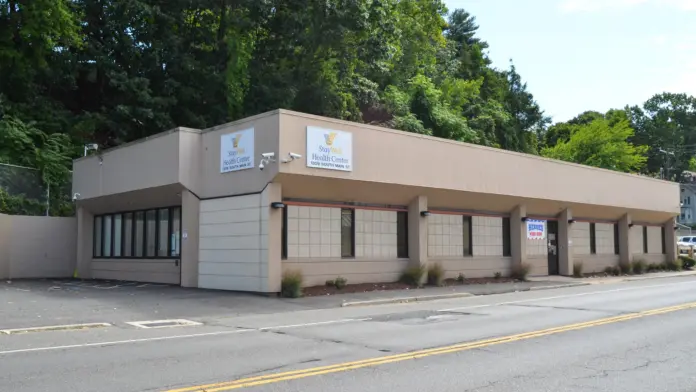
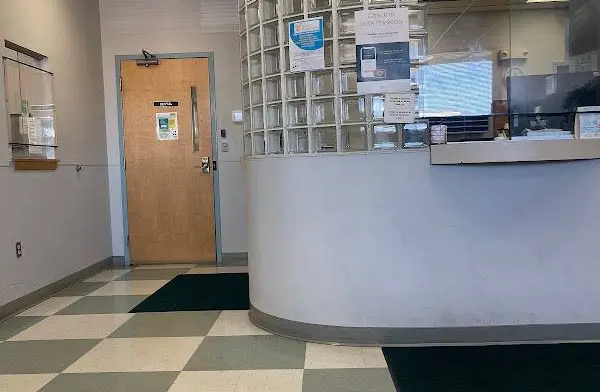
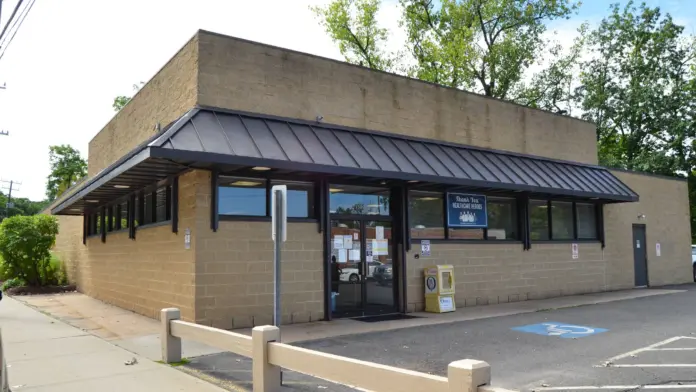
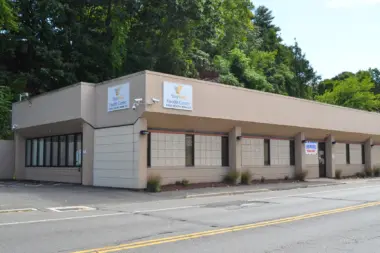
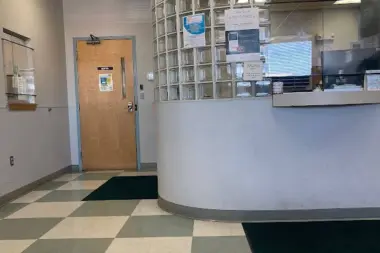
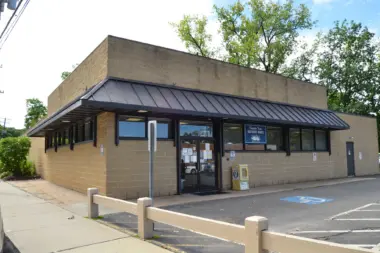
Other Forms of Payment
Medicaid is a state based program that helps lower-income individuals and families pay for healthcare. Medicaid covers addiction treatment so those enrolled can use their coverage to pay for rehab. When a program accepts Medicaid the client often pays very little or nothing out of their own pocket.
Private insurance refers to any kind of healthcare coverage that isn't from the state or federal government. This includes individual and family plans offered by an employer or purchased from the Insurance Marketplace. Every plan will have different requirements and out of pocket costs so be sure to get the full details before you start treatment.
Self-pay involves paying for treatment out of your own pocket. You can use savings or credit, get a personal loan, or receive help from family and friends to fund your treatment. If you don't have insurance or your insurance plan doesn't cover a specific program, self-pay can help ensure you still get the care you need.
Financial aid can take many forms. Centers may have grants or scholarships available to clients who meet eligibility requirements. Programs that receive SAMHSA grants may have financial aid available for those who need treatment as well. Grants and scholarships can help you pai for treatment without having to repay.
Sliding scale payments are based on a client's income and family size. The goal is to make treatment affordable to everyone. By taking these factors into account, addiction recovery care providers help ensure that your treatment does not become a financial burden to you or your family, eliminating one barrier to care.
Medicare is a federal program that provides health insurance for those 65 and older. It also serves people under 65 with chronic and disabling health challenges. To use Medicare for addiction treatment you need to find a program that accepts Medicare and is in network with your plan. Out of pocket costs and preauthorization requirements vary, so always check with your provider.
Military members, veterans, and eligible dependents have access to specific insurance programs that help them get the care they need. TRICARE and VA insurance can help you access low cost or no cost addiction and mental health treatment. Programs that accept military insurance often have targeted treatment focused on the unique challenges military members, veterans, and their families face.
Addiction Treatments
Levels of Care
Outpatient Programs (OP) are for those seeking mental rehab or drug rehab, but who also stay at home every night. The main difference between outpatient treatment (OP) and intensive outpatient treatment (IOP) lies in the amount of hours the patient spends at the facility. Most of the time an outpatient program is designed for someone who has completed an inpatient stay and is looking to continue their growth in recovery. Outpatient is not meant to be the starting point, it is commonly referred to as aftercare.
Treatments
Mental health rehabs focus on helping individuals recover from mental illnesses like bipolar disorder, clinical depression, anxiety disorders, schizophrenia, and more. Mental health professionals at these facilities are trained to understand and treat mental health issues, both in individual and group settings.
Programs
Adult rehab programs include therapies tailored to each client's specific needs, goals, and recovery progress. They are tailored to the specific challenges adult clients may face, including family and work pressures and commitments. From inpatient and residential treatment to various levels of outpatient services, there are many options available. Some facilities also help adults work through co-occurring conditions, like anxiety, that can accompany addiction.
Recovery is most successful when clients feel accepted and validated by their peers and treatment providers. Facilities that offer LGBTQ-inclusive programming are committed to creating a safe space where everyone can grow and recover without fear of judgment or discrimination. They will have dedicated policies in place to create a safe and supportive environment that fosters free expression.
Young adulthood can be an exciting, yet difficult, time of transition. Individuals in their late teens to mid-20s face unique stressors related to school, jobs, families, and social circles, which can lead to a rise in substance use. Rehab centers with dedicated young adult programs will include activities and amenities that cater to this age group, with an emphasis on specialized counseling, peer socialization, and ongoing aftercare.
Clinical Services
Cognitive Behavioral Therapy (CBT) is a therapy modality that focuses on the relationship between one's thoughts, feelings, and behaviors. It is used to establish and allow for healthy responses to thoughts and feelings (instead of unhealthy responses, like using drugs or alcohol). CBT has been proven effective for recovering addicts of all kinds, and is used to strengthen a patient's own self-awareness and ability to self-regulate. CBT allows individuals to monitor their own emotional state, become more adept at communicating with others, and manage stress without needing to engage in substance abuse.
Dialectical Behavior Therapy (DBT) is a modified form of Cognitive Behavioral Therapy (CBT), a treatment designed to help people understand and ultimately affect the relationship between their thoughts, feelings, and behaviors. DBT is often used for individuals who struggle with self-harm behaviors, such as self-mutilation (cutting) and suicidal thoughts, urges, or attempts. It has been proven clinically effective for those who struggle with out-of-control emotions and mental health illnesses like Borderline Personality Disorder.
Group therapy is any therapeutic work that happens in a group (not one-on-one). There are a number of different group therapy modalities, including support groups, experiential therapy, psycho-education, and more. Group therapy involves treatment as well as processing interaction between group members.
In individual therapy, a patient meets one-on-one with a trained psychologist or counselor. Therapy is a pivotal part of effective substance abuse treatment, as it often covers root causes of addiction, including challenges faced by the patient in their social, family, and work/school life.
Nicotine Replacement Therapy (NRT) is a way of getting nicotine into the bloodstream without smoking. It uses products that supply low doses of nicotine to help people stop smoking. The goal of therapy is to cut down on cravings for nicotine and ease the symptoms of nicotine withdrawal.
Trauma therapy addresses traumatic incidents from a client's past that are likely affecting their present-day experience. Trauma is often one of the primary triggers and potential causes of addiction, and can stem from child sexual abuse, domestic violence, having a parent with a mental illness, losing one or both parents at a young age, teenage or adult sexual assault, or any number of other factors. The purpose of trauma therapy is to allow a patient to process trauma and move through and past it, with the help of trained and compassionate mental health professionals.
Staff

Donald Thompson, MPS
President/Chief Executive Officer
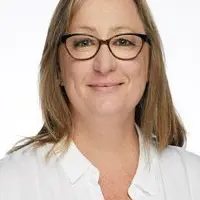
Tess Lombard, MD
Chief Medical Officer

Eric Newman
Chief Financial Officer

Christine Bianchi, MSW, LCSW
Chief Development Officer

Lynn Tripp
Human Resource Director

Mark Briggs
Board Chairperson

Sandra J. Sorel-Leduc
Board Vice President

Carolyn A. Highsmith
Board Treasurer

Alison Campbell
Board Secretary
Contact Information
1309 South Main Street
Waterbury, CT 06706